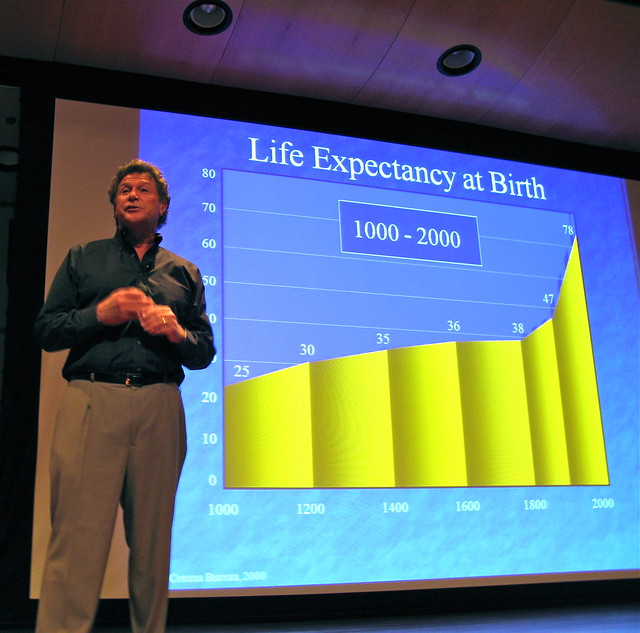 |
| Photo by jurvetson |
How to keep records:
You will need a journal. In the journal, you want to record dates, time, place, etc of your hospital stay. If possible jot down the diagnostics and doctors who served you, write their names in the journal.
You want to record your family’s medical history. Jot down each person in your family tree and name the diagnose. For instance, if your family has a history of diabetes, jot it down. On pen and paper, jot down any information that will help your doctor monitor your health and make an accurate diagnosis in the event illness occurs. Do not rely on your memory. In time, you may not have memory, since your family may have a history of Alzheimer’s disease. When you use medical records, keeping them on paper, make copies. Put the copies in safe hands, someone you can rely on, as you grow older to give the copies to you in the event you lose your copies. Put all your copies in a safe area.
You want to keep records of vaccine shots or immunizations. You want to keep records of lab visits, results, conditions, and treatments you obtained. The records should be updated annually. For instance, if in 2000, you were diagnosed with a disease that caused your liver to shrink, but the disease was curable, write it down. The next year if you notice in similar symptoms, record the new information in your journal. You want to give copies to your doctor as needed.
Once you write your medical journal you can move to research illnesses you might have had at one time. For instance, if in your history you had a repetition visit of colds, learn more about the upper respiratory system. If you had other illnesses throughout your life, take time to study these illnesses. Understanding the illness moves to acceptance, which moves you to prevention?
Prevention is the keyword you want to focus on when it comes to your health. As you age, your body’s functions start to decline its actions, which puts you at high risk of disease. Using your records you want to study illnesses, you may have had throughout your lifetime. In addition, use your records to study genetic disease. For instance, if you have a family history of diabetes, research the subject. Take notes on diagnostics, treatments, cures, and so on.
If you follow this friendly advice, as you start to age you will have advantages. For instance, in the future, if you are diagnosed with diabetes you would know. The first thing you will note is symptoms. You would know that the symptoms include prolonged hunger feelings, fatigue, dizziness, etc.
You would take notes on symptoms that emerge when you feel sick and immediately contact your family doctor. You are at the doctor’s office now taking lab tests and so forth to find out what is wrong with your body. Once you leave the doctor’s office with your results you will feel relaxed, since you know that catching diabetes at an early stage gives a doctor the opportunity to slow or cure the mother of all living diseases. This silent tormentor is a notorious killer that everyone should understand. To learn more about healthy aging, seek more information online, at your doctor, or visit your local library.
